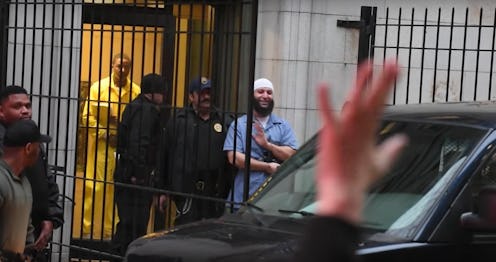News
This Adnan Syed Update Will Make You Lose It If You're A Fan Of The 'Serial' Podcast
CBS News reported Thursday that Adnan Syed has been granted a new trial. Syed was convicted of murdering Hae Min Lee in 2000, and his case became the subject of national scrutiny over 10 years later when it was profiled in the wildly popular Serial podcast. The unusual circumstances surrounding Syed's conviction were detailed at length in Serial, and have led many to question his guilt.
In 2016, a lower court vacated Syed's conviction on the grounds that his attorney, the late Cristina Gutierrez, had failed to cross-examine a crucial witness. Maryland's Attorney General appealed that decision, however, and the question of whether or not to throw out Syed's 2000 conviction came before the Maryland Court of Special Appeals.
On Thursday, the appeals court ruled in Syed's favor, ruling that Gutierrez had indeed provided him with ineffective counsel during the original trial and ordering that Syed be tried again. Syed's lawyer, C. Justin Brown, announced the news on Twitter shortly after the court released its decision.
Brown argued that during the original trial, Gutierrez erred in not calling Asia McClain (now Asia Chapman), a classmate of Syed's, to the witness stand. As detailed in Serial, McClain claims that she had a conversation with Syed at the library around the time Lee was murdered; however, Gutierrez never called McClain to the stand. David Irwin, an attorney for Syed, said in 2016 that had McClain testified on Syed's behalf at the original trial, it would have "changed the ballgame."
"McClain's testimony would have directly contradicted the State's theory of the case by placing Syed at the Woodlawn Public Library at the exact time the State theorized that Syed murdered Hae; a critical element the State had to prove to convict Syed," judges on the appeals court wrote in their ruling.
Additionally, Brown told the court that Gutierrez made a critical error in failing to cross-examine Abraham Waranowitz, an expert on cell phone location tracking. During the original trial, the prosecution used data from Syed's phone to place him at Lee's burial site on the night of her murder, and had Waranowitz testify as to the reliability of that data.
However, the cell phone data that Waranowitz examined also came with a cover sheet, from AT&T, disclaiming that "incoming calls will NOT be considered reliable information for location." The prosecution used incoming calls to Syed's phone in their case against him, and Brown argued that Gutierrez should have cross-examined Waranowitz about this discrepancy. In 2015, Waranowitz signed an affidavit stating that he hadn't been made aware of that cover sheet during the original trial, and that if he had, he "would not have affirmed the interpretation of a phone's possible geographical location."
"I consider the existence of the disclaimer about incoming calls to have been critical information for me to address," Waranowitz wrote in the affidavit. "I do not know why this information was not pointed out to me."
Although Syed prevailed in court Thursday, it's not at all clear what happens next. The state still has the right to appeal the ruling to the Maryland Supreme Court, which would most likely take months to decide whether or not Syed deserves a new trial. It's impossible to know how the state Supreme Court would rule.
However, the prosecution hasn't yet said whether or not it will appeal the case; after the appeals court ruled in Syed's favor, Maryland Attorney General Brian Rosh said in a statement that he's "currently reviewing today's decision to determine next steps."
In the meantime, Brown said Thursday that he's considering whether to fight for Syed's release on bail while the case makes its way through the courts.
